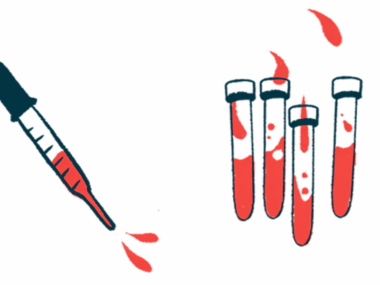FDA awards support Sernova’s work into Cell Pouch for hemophilia A
Cell therapy program given orphan drug, rare pediatric disease status
Written by |

The U.S. Food and Drug Administration (FDA) has given orphan drug and rare pediatric disease designations to Sernova’s experimental and cell-based hemophilia A treatment program using the Cell Pouch System, the company’s novel medical device.
Orphan drug status is awarded to therapies aiming to treat rare disorders that affect fewer than 200,000 U.S. residents. It provides a series of benefits to manufacturers, including tax credits for clinical research and seven years of market exclusivity if a therapy is approved.
A rare pediatric disease designation is given to potential treatments for rare conditions that mainly affect children, patients under age 18, and includes a priority review voucher that may be redeemed, transferred, or sold.
“We are pleased with the FDA’s decision to grant these designations for our novel treatment for Hemophilia A, which uses the Cell Pouch in combination with cells corrected for the production of Factor VIII,” Cynthia Pussinen, Sernova’s CEO, said in a company press release.
Cell Pouch System aims to overcome barriers to cell therapy for hemophilia
“Hemophilia A is a serious, life limiting condition and we are committed to advancing development of the program, with a hope to positively impact patients around the world who are waiting for improved treatments,” Pussinen added.
An estimated 20,000 people in the U.S., 2,500 in Canada, and 10,000 in Europe have moderate to severe forms of hemophilia A. The disease, caused by a lack of the blood clotting protein factor VIII (FVIII), can result in excessive and prolonged bleeding.
Cell therapy is a treatment approach in which cells are harvested and engineered in a lab to be able to generate high levels of that missing protein. They then are transplanted into a patient, where they are expected to produce the protein continually, restoring healthy levels.
The rub in cell therapy development is the transplant process, since newly transplanted cells face a number of challenges, including an initial lack of access to blood vessels that bring them nutrients. Transplanted cells also can be destroyed by the host’s immune system, which may view them as abnormal and a potential threat.
With Cell Pouch, Sernova seeks to surmount such obstacles. The system comprises an implantable medical device designed to provide an environment that promotes the growth of transplanted cells. The device is crafted from materials employed in other approved and implantable devices, the company reports.
A 2021 published study found that Cell Pouch’s use safely and effectively raised FVIII levels and reduced bleeds in a mouse model of hemophilia A. A 2020 HemAcure Consortium study, supported by a European Union grant, found that Senova’s under-the-skin (subcutaneous) Cell Pouch delivery device, in combination with gene therapy, eased bleeding in a mouse model of hemophilia A.
Work planned in animal models to support a move into clinical testing
Sernova, based in Canada, also announced a collaboration with Università del Piemonte Orientale in Italy, under the direction of Antonia Follenzi, MD, PhD, a professor there who led the HemAcure study. Preclinical work in hemophilia A animal models will look to develop a treatment combination using the Cell Pouch, and to generate data supporting potential hemophilia A clinical studies.
Specifically, this animal work aims to optimize, using the Cell Pouch delivery device, the technology that enables blood outgrowth endothelial cells of hemophilia A patients to produce and release high amounts of FVIII into the bloodstream.
“I am pleased to be working with the Sernova team on these advanced technologies for a new and safe treatment of patients with Hemophilia A using a gene and cell therapy approach within the Cell Pouch,” Follenzi said. “Our goal is to advance these new technologies to further maximize the release of FVIII into the bloodstream and to extend the duration of that release for a sufficient duration of time to eliminate the need for weekly infusions of FVIII.”
Sernova and AstraZeneca this year also announced plans to collaborate on a preclinical research effort to develop cell therapies for several disorders.



